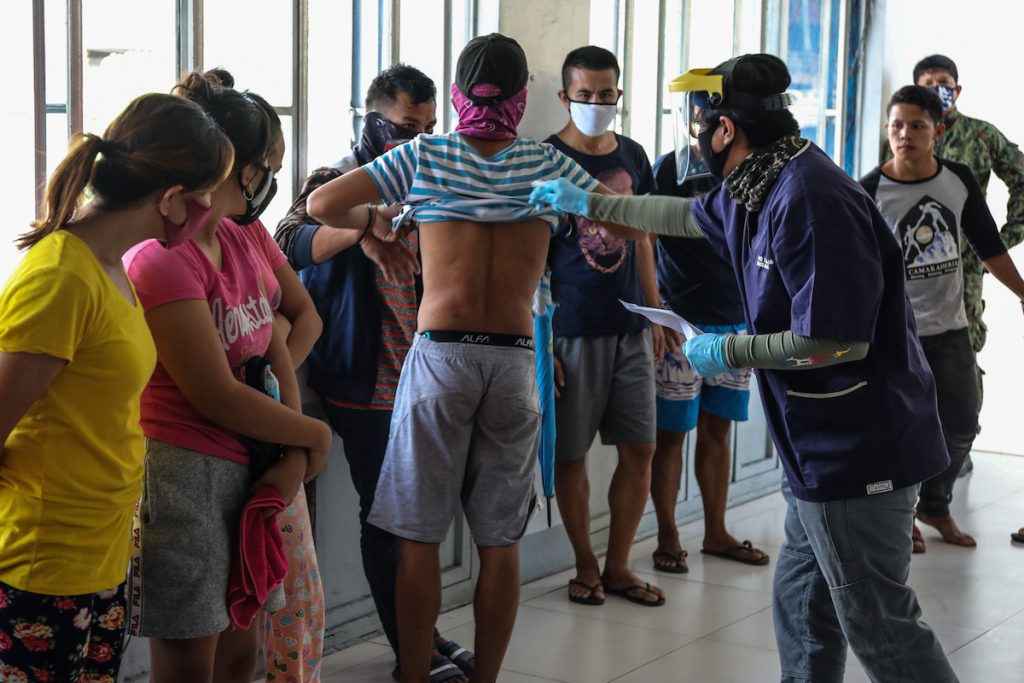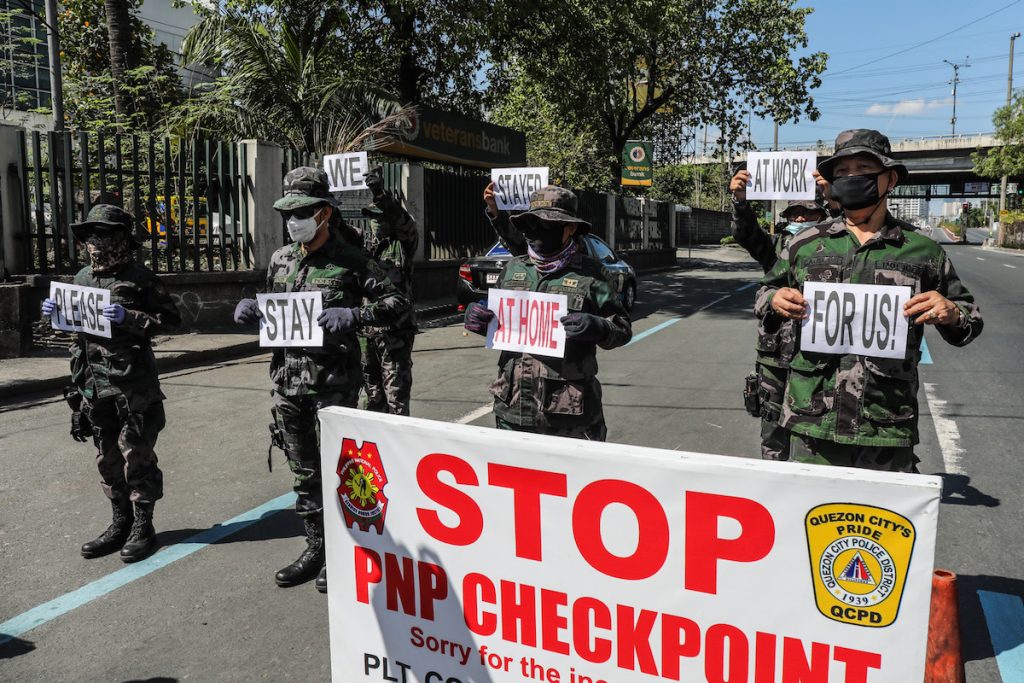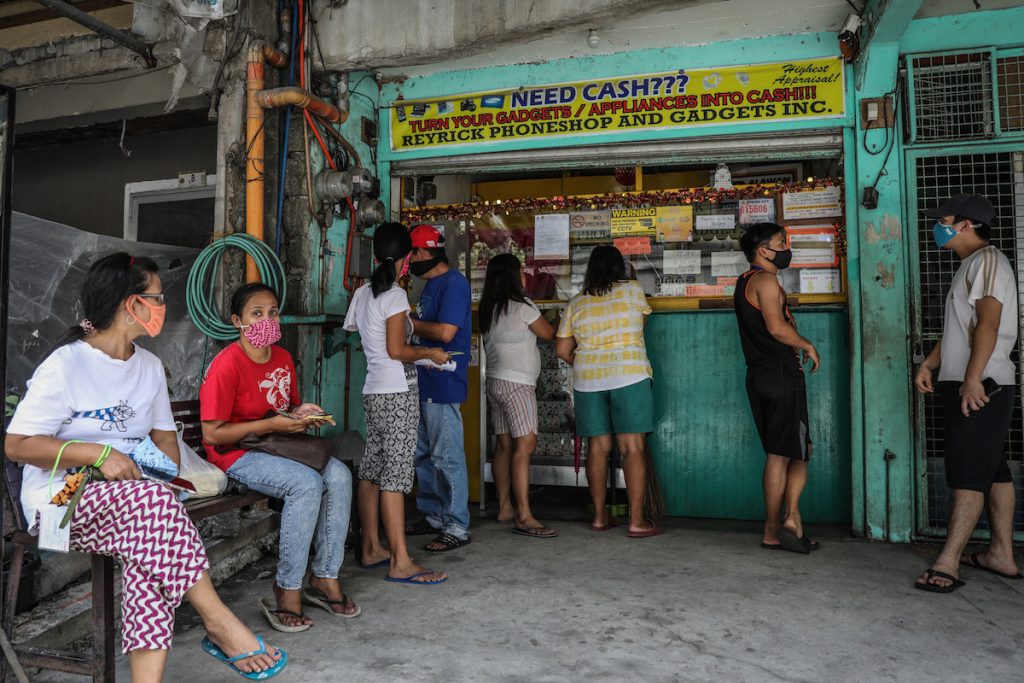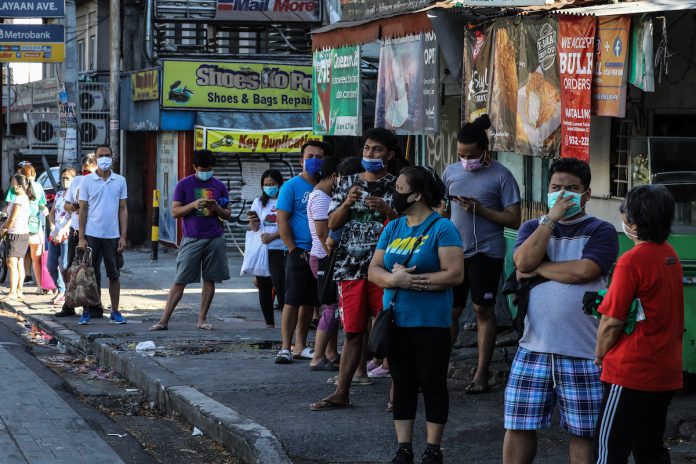Police in the Philippine capital dispersed on April 1 a group of urban poor residents demanding food provisions amid a draconian lockdown that has deprived one-third of the labor force of income.
The violence occurred a day after President Rodrigo Duterte said he had US$17.7 billion on hand to fight the spread of the coronavirus disease that already infected more than 2,000 people in the country.
Police armed with long sticks scattered about a hundred people, including women and children, in the village of New Hope in Quezon City, who demanded food and cash aid from the city government.
Behind the crowd of poor people loomed malls, high-rise hotels, and buildings housing technology centers and middle-class professionals.
The village, Sitio San Roque, is accessed through narrow alleys that have seen pitched battles in half a decade of demolitions of urban poor settlers.
Spin and expectations
The neighborhood is composed largely of casual laborers in the government and private sectors, and day workers who eke out a living on the streets.
All have been badly affected by the “enhanced community quarantine” that Duterte imposed on March 16 for the main island of Luzon.
The government is right to want to stem the spread of the novel coronavirus disease that has already killed 88 people.
But it launched the lockdown with little thought for more than half a million poor families stranded in the capital’s congested communities.
The “no work, no pay” rule of most companies covers casual labor and day workers.
The government does not list the latter among the unemployed sector, but most earn income that hardly meet subsistence levels.

“I have money,” the president boasted during a taped addressed on television on March 30. Food had already been dispatched to communities, he added.
That sent the poor to the doorsteps of grassroots governance body the morning after. But there was little to give.
A March 31 report by the national social welfare agency showed that it had spent only US$430,000 on food and non-food items for only 4,753 families, not even ten percent of the capital region’s poor.
Promises, promises
Since the start of the lockdown, the president has foisted on grassroots leaders the burdens of feeding millions of poor folks in the national capital.
His March 30 address was filled with threats against corrupt officials who divert food aid. That was disingenuous at best.
Local officials have been using up their budgets over the last two weeks with no aid from national leaders who insist on centralizing emergency response in an archipelago of about 110 million people.
They have spent on food, on transportation for medical workers and other front liners, for mobile markets, for quarantine centers.
Even after Duterte demanded and received special powers to tap the national budget last week, little aid has reached Metro Manila’s mayors.
By all indications, relief will be painfully slow for 18 million low-income families across the country.

Duterte’s mix of brutal threats and hyperbolic, self-serving spin offers no alternative for people who have gone hungry for half a month now.
The president’s new promises include cash aid between US$100 to US$157 (P8,000) for vulnerable sectors under the social welfare department.
The Labor department also pledged a US$100 assistance for casual workers.
There has been talk but little action due to red tape.
Tinderbox
More than 3,000 companies in the capital have failed to submit documents allowing the release of the cash aid for non-regular employees.
The labor department, which has records for all these companies, has instead asked workers to submit pay slips through an online process that is alien to many of the poor.
The social welfare department rolled out a four-step mechanism that starts with house-to-house distribution of forms and then assessment of who actually needs aid.
Technocratese highlights the mismatch between crisis and government response.
“The [Department of Finance] will provide technical assistance to the [social welfare office] in forming a consolidated database that will host COVID-19 social amelioration programs,” announced an inter-agency task force against the spread of the disease.
“The database will be derived from existing beneficiary lists submitted by government agencies and [local government units], and will be used to determine the subsidy amounts for household beneficiaries,” it added.
That’s an unconscionable delay by a government that spent more than a month drafting its one-month lockdown blueprint.

Duterte’s government acts as if it were ruling over a developed nation.
The planners of the lockdown did not even bother consulting with a consultative body under the National Anti-Poverty Commission.
As the COVID-19 crisis unfolds, a regime that has gotten so used to relying on brute force may find that batons are no match for a hungry people.
Inday Espina-Varona is an award-winning journalist in the Philippines. She is a recipient of the “Prize for Independence” of the Reporters Without Borders in 2018. The views expressed in this article are the opinions of the author and do not necessarily reflect the editorial stance of LiCAS.news.









